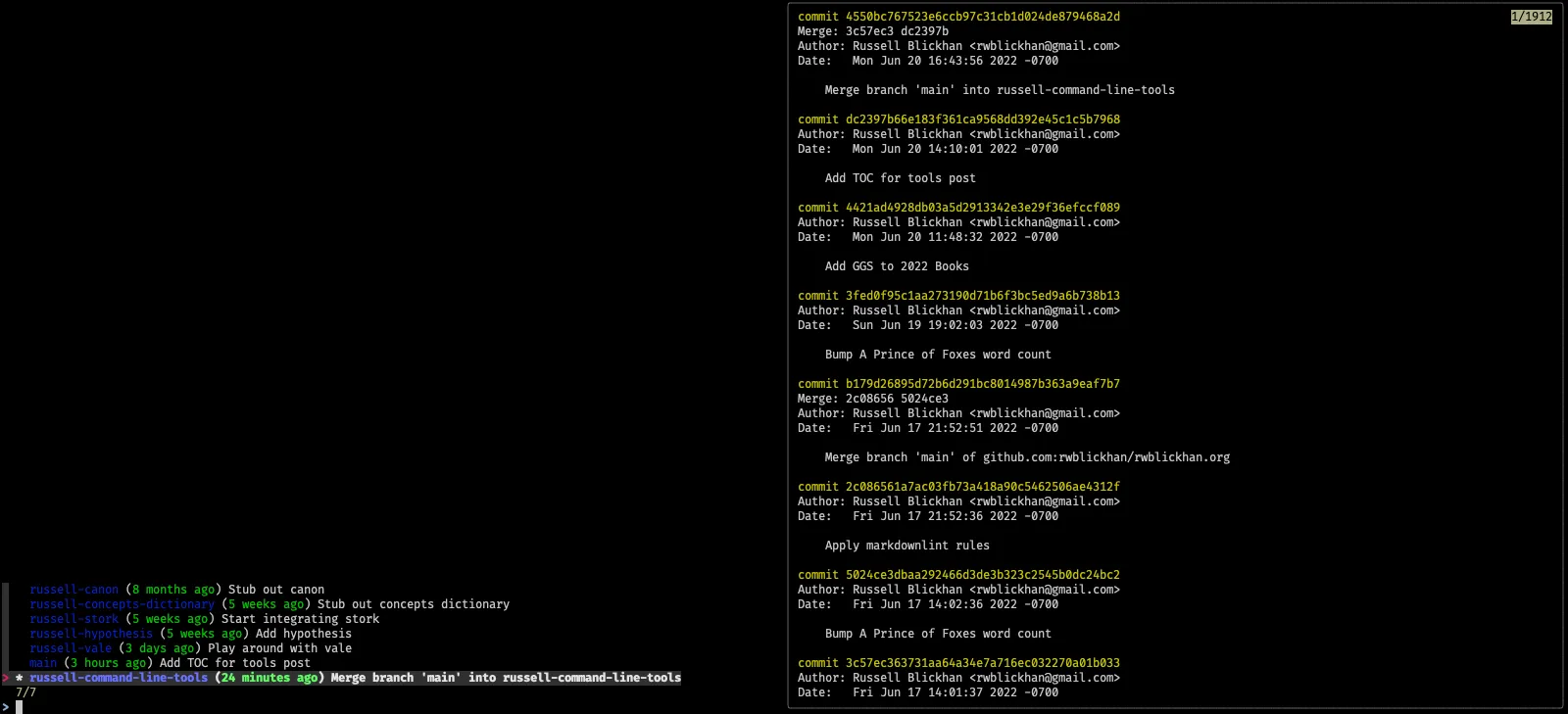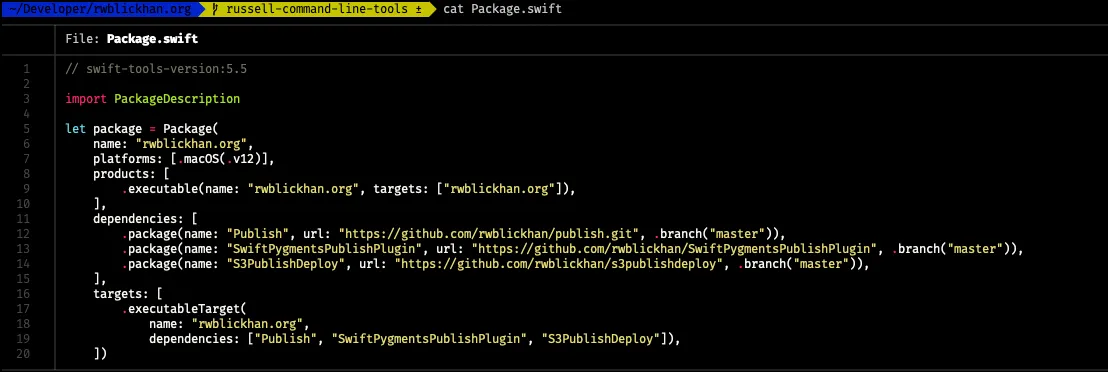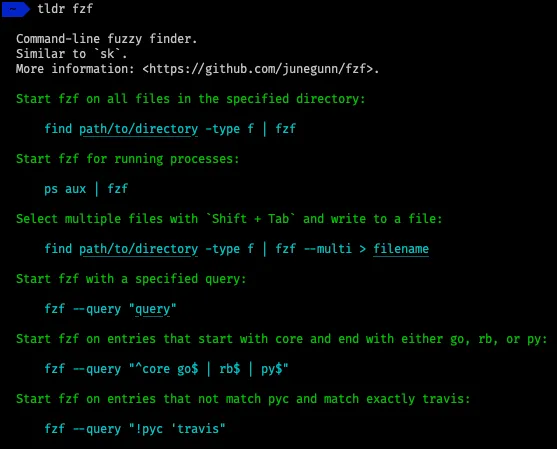Command Line Tools I Like (2022)
Last updated: 7/17/2024 | Originally published: 6/21/2022
This is another fairly technical post, and in particular presupposes some enthusiasm for the command line. If that isn’t you, feel free to skip this one!
Despite being primarily an iOS developer, I use the command line quite a bit - I guess old habits from my time as an embedded software intern die hard. That said, I like a number of modern command line tools, many written in Rust, which are typically blazing fast and have better command-line interfaces than traditional Unix tools.
If you like this list, you might also like Julia Evan’s more comprehensive list!
neovim
I have a noted love for vim, but when I’m not using an IDE with a vim mode, I’m actually typically using neovim, alias nvim, which is a modern reimplementation of vim with much less technical debt, a scripting engine based on Lua instead of notoriously-idiosyncratic vimscript, and reasonable defaults like syntax highlighting enabled by default. It also has a full implementation of the Language Server Protocol, which enables it to have very rich, Visual Studio Code-esque plugins.
fzf

fzf is a command-line fuzzy finder; given some input, fzf lets you search through the input with a fuzzy matching search term. One use I find for this is my custom git alias for a fancy branch switcher, git b, which lets me fuzzy-search for branch names when I want to switch branches.

It’s also useful on its own! It can helpfully install a replacement for your terminal’s Ctrl+R to fuzzy-search previous commands, as well as a Ctrl+T command to fuzzy-search files in the current directory (although, to be honest, I usually find this option less than effective).
bat

bat is described as a “cat(1) clone with wings”. cat is technically supposed to be for concatenating text, but more often it’s simply used to print a file to the command line. bat leans into that usage by automatically piping large files into a pager, as well as adding syntax highlighting and git integration. I have cat aliased to bat.
exa

exa is a modern replacement for ls. Although I do think it has more reasonable defaults than ls, I really only use it for one reason: the pretty colours! I have ls aliased to exa.
rg

ripgrep, aka rg, is a grep tool; it allows you to efficiently search the full text of all files in a directory using regular expressions. Admittedly, it’s often more convenient to use a real IDE’s search function, but rg works everywhere and is blazingly fast.
fd

fd is a modern replacement for find. Unlike rg, which searches the full text of files, fd just searches filenames. This is useful in large codebases where you know roughly what a file is named but don’t know what directory it lives in. fd has a more intuitive command-line interface than find and even ignores files in your .gitignore by default! I have find aliased to fd.
Notably, some of this behavior is also provided by fzf, but I usually find fd much more effective in actually finding what I want.
delta

Don’t you wish your command-line git diff was as pretty as Github? Well, now it can be! delta makes git diff output much prettier, with word-level highlighting, line numbers, and an optional side-by-side mode.
tldr

tldr is a utility that provides community-maintained help pages for command-line tools, meant to complement traditional man pages, which are typically verbose. Instead, tldr provides a quick cheat-sheet for common use cases. I use the tealdeer implementation of tldr.
zoxide
zoxide is a replacement for cd, inspired by z, that lets you jump around quickly. At a basic level, it can completely emulate the behavior of typical cd. However, you can also give it a fuzzy search term, and it will use a “frecency” algorithm to determine which directory, anywhere on your system, to jump to. I have cd aliased to z, the binary for zoxide.
zoxide also has an interactive mode that uses fzf to fuzzy-find recent directory paths. I have that functionality aliased to cdi, though I haven’t gotten in the habit of using it yet.
httpie
HTTPie is a recent discovery. I don’t need to use curl very often to make HTTP requests, but when I do, it’s always a bit painful to remember the syntax. HTTPie has a much more obvious command-line interface and also built-in support for making HTTPS requests.